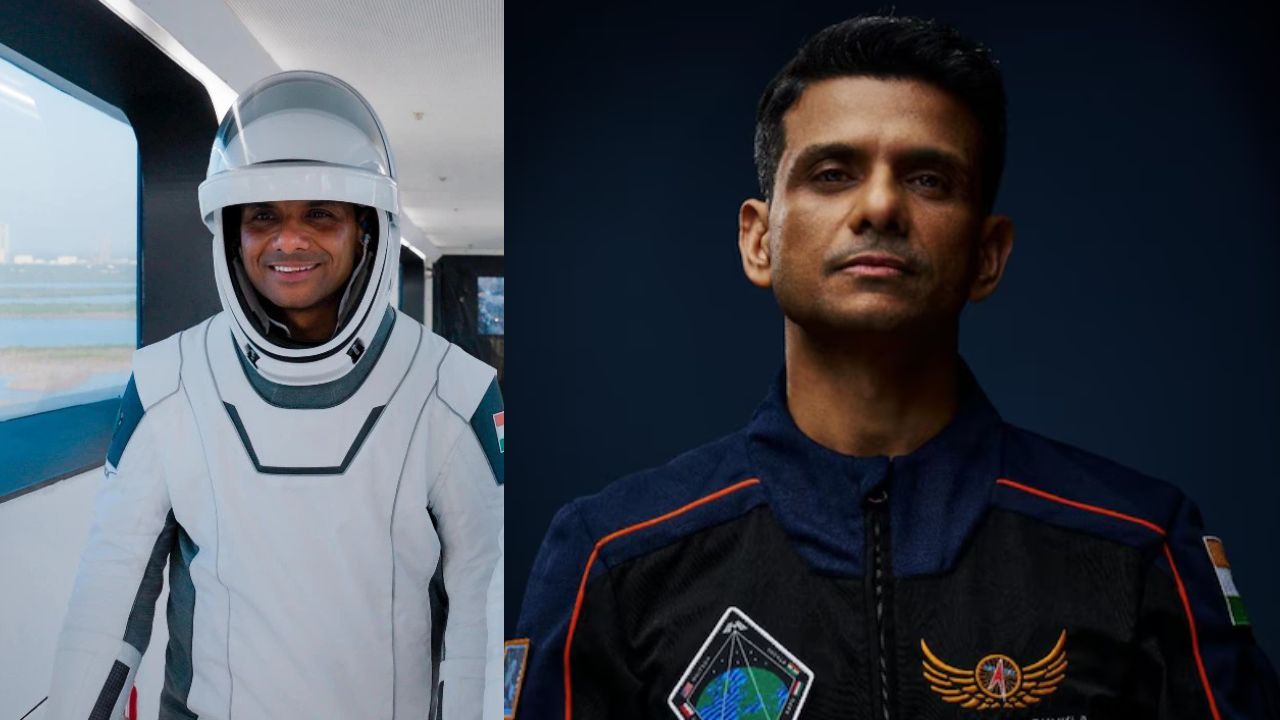June 26, 2025 will forever be etched in Indian space history. On this historic day, Group Captain Shubhanshu Shukla of the Indian Air Force became the first Indian astronaut to set foot on the International Space Station (ISS), marking a monumental leap for India’s presence in human space exploration.
🚀 The Historic Mission
The mission, part of Axiom Mission 4, launched aboard a SpaceX Falcon 9 rocket from Kennedy Space Center, Florida. The crewed Dragon capsule, named “Grace”, carried four astronauts including Shukla, along with crewmates from the United States, Poland, and Hungary. Just a day after liftoff, on June 26, the spacecraft successfully docked with the ISS.
As the hatch opened, Shukla floated into the station with the Indian flag on his shoulder, smiling and offering a solemn “Namaskar from Space” to the world. This simple gesture resonated deeply across India, rekindling national pride and excitement for the country’s space future.
✈️ A Decorated Career
Shubhanshu Shukla’s journey began in Lucknow, where he was born in 1985. A product of the National Defence Academy, he was commissioned into the Indian Air Force in 2006. Over nearly two decades of service, he flew an impressive variety of aircraft, including the MiG-21, Jaguar, Su-30MKI, and MiG-29. By 2024, he had earned the rank of Group Captain and had logged over 2,000 flying hours.
His selection as one of India’s astronaut candidates for the Gaganyaan mission led to rigorous international training, including stints in Russia’s Yuri Gagarin Cosmonaut Training Center and later at ISRO’s astronaut training facility in Bengaluru. This comprehensive preparation set the stage for his selection to Axiom’s pioneering commercial mission to the ISS.
🧪 A Mission Beyond National Boundaries
Unlike earlier space missions that were primarily state-sponsored, Axiom Mission 4 represents the new era of commercial human spaceflight. The mission is not only scientific but deeply symbolic—bringing astronauts from four different nations together to collaborate on research in microgravity, space medicine, and material sciences.
Shukla is slated to conduct several Indian-led scientific experiments aboard the ISS. These include experiments on fluid dynamics, radiation exposure, and plant growth in space, aimed at supporting long-term space habitation and informing India’s future deep-space missions.
🗣️ A Message from the Stars
Shortly after arriving at the ISS, Shukla delivered his first message to the world:
“It has been a wonderful ride. The crew made me feel so welcome… Thanks to your love and blessings, I have safely reached the ISS. It is a privilege to be here.”
His words struck an emotional chord back home, with celebrations erupting across cities and towns. Schools, scientific institutions, and public offices held special screenings of the mission. His alma mater in Lucknow organized live-viewing events, and his family was seen tearfully celebrating the moment.
🌌 National Significance
Shubhanshu Shukla’s mission is more than just a technical achievement. It’s a symbol of India’s growing footprint in the global space ecosystem. While Rakesh Sharma’s 1984 mission aboard Salyut 7 was state-led during the Cold War, Shukla’s mission represents India’s entry into the 21st-century model of international space collaboration.
It also demonstrates how India’s human spaceflight program is no longer in its infancy. With Gaganyaan preparing for future independent missions, this ISS milestone showcases India’s readiness to integrate into broader global space missions, both public and private.
🔭 A Glimpse Into the Future
India’s space ambitions are scaling new heights. This mission opens doors for more frequent participation in international missions, private partnerships, and joint research ventures. It also reinforces the Indian government’s commitment to fostering space technology and encouraging private players to collaborate with ISRO.
Shukla’s voyage is not just a personal triumph—it’s a launchpad for the aspirations of millions of young Indians who dream of touching the stars. His name now joins the ranks of space pioneers, becoming an enduring source of inspiration.
In Conclusion
As Shubhanshu Shukla orbits 400 kilometers above Earth, he carries with him the hopes, dreams, and pride of 1.4 billion Indians. His presence aboard the ISS is a reminder that the sky is not the limit—but just the beginning.India has arrived. And space is now part of its journey.


